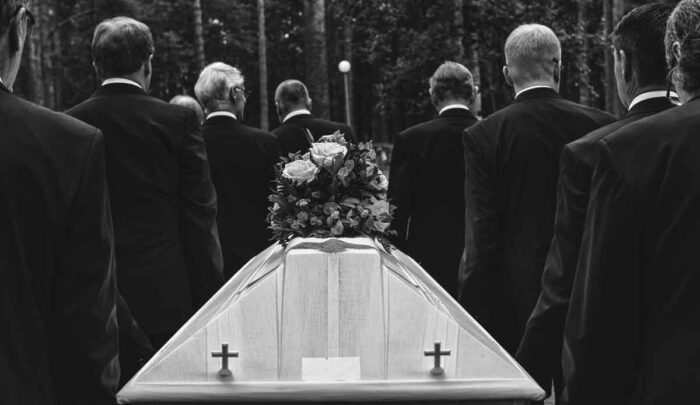Whilst what funeral directors do as part of organising funerals involves many practical matters, such as planning the route, arranging for the required number of cars, and even booking the church for a religious funeral, they also have a role that involves advising, counselling, and consoling those who have been bereaved.
Following the death of a loved one, especially a sudden death, the immediate family of the deceased will be experiencing an array of emotions, including grief, anger, despair, and confusion, to name but four. Given that a funeral director might be one of the first people a family speaks to outside their immediate circle, it is safe to say funeral directors can help them in many ways.
One way that might manifest itself is in explaining to the family, not just in practical terms, such as how a funeral can be organised, but in a more meaningful and mindful way as to why the funeral is so vital in helping them move on from the loss of their loved one. Here are five reasons why a funeral is meaningful for those who have lost a loved one.
A Funeral Is A Means To Celebrate A Loved One’s Life
No rule says a funeral has to be wall-to-wall sadness, which is why many funerals today celebrate the deceased’s life rather than purely mourning. Often, this will have been arranged by the deceased as part of the pre-planning of their funeral when they were alive.
Funeral directors are now asked to arrange celebratory funerals more than traditional and sombre funerals. Families in mourning often feel lifted, having listened to and watched a funeral celebrant highlight the many positive traits of their departed loved one, along with many of their most notable life events.
A Funeral Allows For Proper Grieving
Following the death of a loved one, many family members struggle to go through the grieving process for various reasons. This includes them being so involved in funeral planning that they do not find time to grieve. Alternatively, it could be that their coping method is to focus on their routine rather than taking time out to grieve. Others may feel ‘too embarrassed’ to show grief, which is sometimes the case with males.
When the loved one’s funeral takes place, even to celebrate their life, there will be grief on display, which is to be welcomed. As such, it gives those who might have struggled to grieve properly an opportunity to do so in an environment that makes it feel natural.
A Funeral Is An Opportunity To Say A Proper Goodbye
When is the proper time to say goodbye to a departed loved one or friend? There is no 100% correct answer because it will be different for everyone who knows them. The problem arises as to when or how to say goodbye if an individual is unsure. That is where the funeral becomes the answer to the question we posed. Accordingly, the funeral provides a degree of closure for everyone and an ideal moment to say goodbye correctly to someone who will be dearly missed.
A Funeral Brings Together Family And Friends In A Spirit Of Support
One of the positives that funeral directors will highlight when discussing a funeral with a bereaved family is that it will engender an atmosphere of support. Everyone deals with grief differently, but what cannot be denied is that having the help of others at a funeral, many of whom will also be going through a similar grieving process, can feel extremely positive and reassuring for all who are there.
A Funeral Can Engender Forgiveness
Many emotions are triggered when someone passes immediately and at their funeral. We are sure you will agree one such positive emotion is forgiveness. At a funeral, the deceased’s loved ones often realise that life is too short to hold grievances or harbour negative thoughts because someone has wronged them. This is when they may forgive another and mend a broken relationship, meaning that, even in death, their loved one is still positively impacting their lives.

